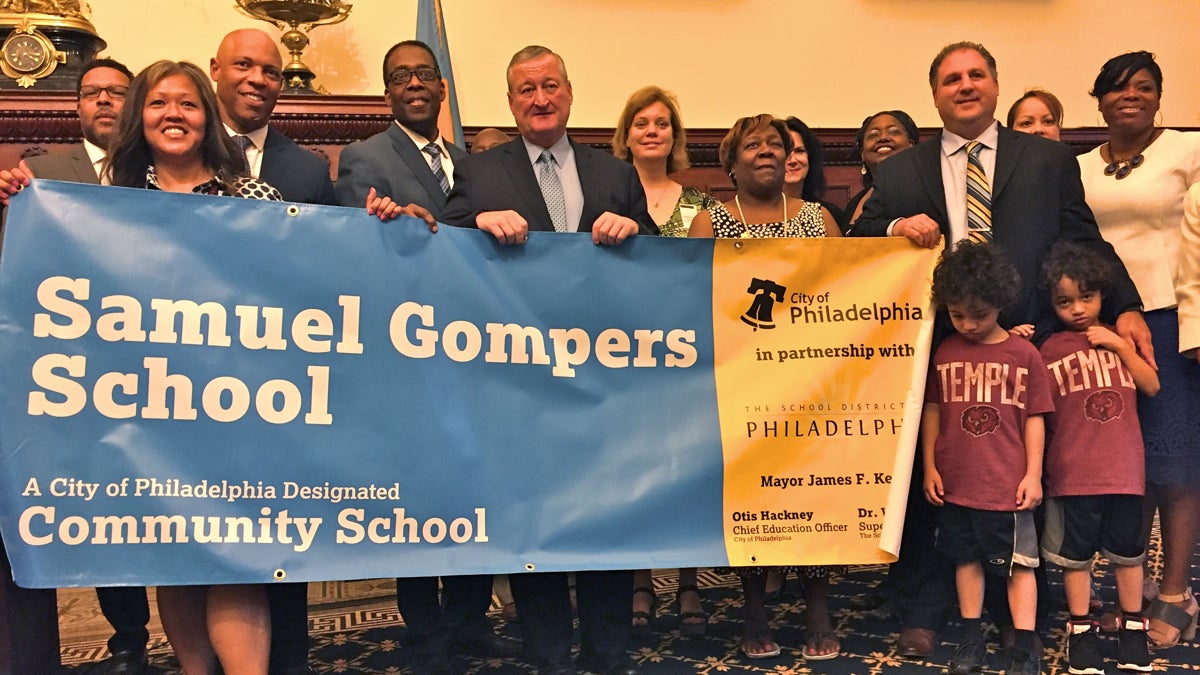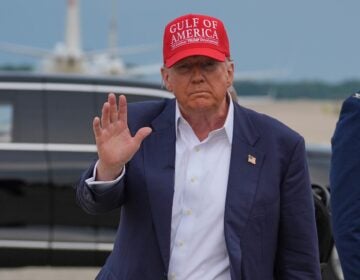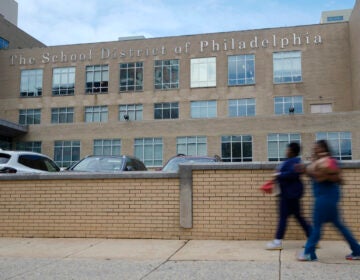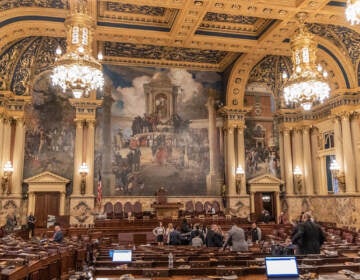With broader initiative on hold, some Philly community schools press forward
Philly's community school initiative will be smaller and take longer to expand than initially projected. Still, the dozen schools already named are forging ahead.
Listen 2:00
Samuel Gompers School in Philadelphia's Overbrook neighborhood was designated a community school in August. (Avi Wolfman-Arent/WHYY)
Officials at Philadelphia’s newest community schools outlined their priorities Monday even as the broader initiative appears to be on hold.
Citing ongoing litigation against the city’s new sweetened beverage tax, Mayor Jim Kenney’s administration doesn’t plan to name new community schools this year. A lawsuit against the beverage tax is awaiting trial before the state Supreme Court, potentially imperiling dollars earmarked for pre-K expansion, recreation center rehabilitation, and community school creation.
“We currently don’t have an expansion itself planned for this year,” said Susan Gobreski, who runs the community schools initiative for the Mayor’s Office of Education. “We’ll make some decisions once the beverage tax is resolved.”
In its first year, the beverage tax also generated less money than administration officials projected. Last year, the 1.5 cents-per-ounce tax raised $79 million, about $13 million less than the $92 million the city had projected.
Amid the revenue shortfall and litigation, Kenney has reduced the scope and ambition of his signature education initiatives. After initially pledging to create 25 community schools by fiscal year 2020, the administration now anticipates having 20 community schools online by fiscal year 2023, according to the latest five-year plan. The city’s pre-K expansion will now include 5,500 new high-quality seats instead of 6,500.
At some point, Gobreski said, the city would like to add two community schools a year, but it’s unclear when that expansion would resume. Right now, the city officials say, large sums of beverage tax revenue are being kept in reserve so they can continue funding the 12 community schools and 2,000 pre-K seats already created if courts deem the levy illegal.
Three of those 12 community schools were center stage Monday: Samuel Gompers Elementary in West Philadelphia; George Washington High School in Northeast Philadelphia; and Alain Locke Elementary in West Philadelphia. All three joined the community school initiative last year, although Locke’s efforts are being funded through a federal grant rather than beverage-tax dollars.
The community school concept calls for schools to become neighborhood hubs capable of helping students and their families surmount health problems, unemployment, hunger, and other barriers that can impede learning. As part of the transformation process, coordinators at each school survey the community to see what types of services residents feel they need.
Locke will focus its efforts on mental health, after-school programming, and job access. Gompers’ community school plan will tackle after-school opportunities and physical health. At George Washington High School, the aim will be to provide better job access and services for immigrants.
Almost half of the residents in the community surrounding George Washington were born outside the United States, and there’s an unmet demand for language classes, said site coordinator Caitlyn Boyle.
“It was a pretty early-on and obvious and immediate need,” said Boyle, who found that a local library offering English classes had more than 200 people on its waiting list.
George Washington has already started to create its own language and job-training classes for adults in the community; many immigrate with impressive educational credentials, but they aren’t sure how to make them translate in a new country. The school plans to team with JEVS Human Services, a nonprofit, on seminars covering resume writing, interview skills, and job searching in the online age. Consistent with the concept behind community schools, all of these extras will be offered on school grounds, ideally transforming the massive high school campus into a magnetic community space.
At Gompers, located in the city’s Wynnefield neighborhood, the community school designation marks progress for a school once slated for closure in 2013. The school district eventually reversed its decision and closed a nearby middle school instead. For longtime principal Phil DeLuca, the school’s survival fulfills a prediction made during that crisis.
“I remember they said, ‘DeLuca, what are you gonna do next year? Your school is closing,’ ” he recalled Monday. “And I said, ‘First of all, it’s not closing.’ And I said, ‘I plan on being here next year.’ ”
Five years later, he’s still at Gompers and excited about the school’s potential. So is Councilman Curtis Jones, who described the surrounding community as one of Philadelphia’s “middle neighborhoods,” with the potential to retain its working-class vibrancy or slip into dysfunction.
“This neighborhood could go either way,” Jones said.
WHYY is your source for fact-based, in-depth journalism and information. As a nonprofit organization, we rely on financial support from readers like you. Please give today.





